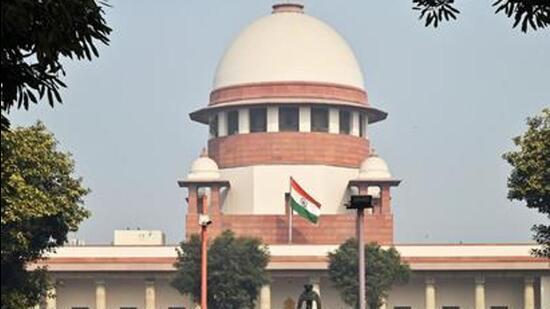
Calling someone ‘Miyan-Tiyan’ & ‘Pakistani’ not an offence: Supreme Court
In a recent judgment, the Supreme Court of India has clarified that using derogatory terms such as “Miyan-Tiyan” and “Pakistani” may be in poor taste, but it does not constitute a criminal offence. The ruling came in response to a case filed against an 80-year-old man who was accused of hurling abuses at an Urdu translator in Jharkhand.
The case was filed by the translator, who claimed that the elderly man had used inappropriate language against him, including the terms “Miyan-Tiyan” and “Pakistani”. The translator alleged that these remarks had hurt his religious sentiments and sought damages from the accused.
However, the Supreme Court disagreed with the translator’s claims and closed the case, ruling that the use of these terms did not amount to hurting religious sentiments. In its judgment, the court noted that while the terms used by the accused may be considered derogatory and in poor taste, they did not cross the line into criminal behaviour.
This ruling has sparked a heated debate in India, with some arguing that the use of such language is unacceptable and offensive, while others claim that it is a matter of personal taste and not a criminal offence. The Supreme Court’s decision has also raised questions about the limits of free speech in India and whether it is possible to balance individual freedoms with the need to protect religious and social sensitivities.
What does “Miyan-Tiyan” mean?
For those who may not be familiar with the term “Miyan-Tiyan”, it is a pejorative slang term used to refer to Muslims, particularly those from urban areas. The term is often used in informal settings and is considered derogatory and offensive by many Muslims.
In the context of the Supreme Court’s ruling, the use of this term is significant because it highlights the complex and often fraught relationship between different religious and linguistic communities in India. The term “Pakistani” is also significant, as it is often used as a slur to refer to Muslims in general, rather than specifically to citizens of Pakistan.
The debate over free speech
The Supreme Court’s ruling has sparked a debate about the limits of free speech in India. Some argue that the use of derogatory language, even if it is not intended to cause harm, can still be harmful and offensive. Others argue that the court’s decision is a blow to free speech and that the government should not be able to regulate what people say, even if it is offensive.
The debate is particularly relevant in the context of India’s diverse and complex social fabric. The country has a long history of religious and linguistic tensions, and the use of derogatory language can often exacerbate these tensions.
The case of the 80-year-old man
The case against the 80-year-old man who was accused of hurling abuses at the Urdu translator is a reminder of the need for greater sensitivity and understanding in our interactions with people from different backgrounds. The man’s alleged use of derogatory language is unacceptable and offensive, and it is important that such behaviour is not condoned or excused.
At the same time, the Supreme Court’s decision is a reminder that we must also be mindful of the limits of free speech and the need to balance individual freedoms with the need to protect religious and social sensitivities. In this case, the court’s decision to close the case and dismiss the charges against the accused may have been the right one, given the lack of evidence and the fact that the accused’s remarks did not amount to a criminal offence.
Conclusion
In conclusion, the Supreme Court’s ruling that calling someone “Miyan-Tiyan” and “Pakistani” is not an offence is a complex and nuanced one. While the use of such language may be in poor taste and offensive, it does not necessarily constitute a criminal offence. The ruling highlights the need for greater sensitivity and understanding in our interactions with people from different backgrounds, and the need to balance individual freedoms with the need to protect religious and social sensitivities.
As we move forward, it is important that we engage in a constructive and respectful debate about the limits of free speech and the need to promote greater understanding and tolerance in our society. By doing so, we can work towards creating a more harmonious and inclusive society that values diversity and promotes mutual respect and understanding.






